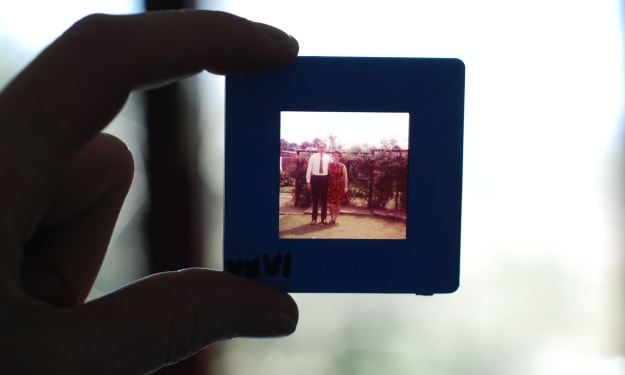
The first time Abigail Greenleaf mounted the ladder that led to the roofwalk of her Nantucket home, it was an unseasonably warm day in autumn. The young woman pushed open the trapdoor and stepped out onto the platform.
A slight breeze stirred the few leaves dancing at her feet, and the sunlight shimmered on the ocean waves. The view from the rooftop would have filled most anyone's heart with happiness, but Abigail felt only dread.
As she watched her husband's whaling ship move further out to sea and slip over the horizon, she thought about the months that would pass before she would see him again. By that time, God willing, she would be safely delivered of their first child. But, like all whalers' wives, she worried each time he went to sea that he would never return.
The platform on which she stood had been erected to facilitate the extinguishing of chimney fires. It was also an ideal place for monitoring the movements of ships in the waters surrounding the island. When her friend Emily from Boston stayed with them shortly after she and Elijah were married, she alighted from her carriage and looked up at the house. As Abigail greeted her, Emily exclaimed, "What a fine house this is. Why you even have a widow's walk!"
Abigail frowned. "A widow's walk? Whatever do you mean?" Emily explained that roofwalks were called widow's walks on the mainland.
"There are so many fanciful tales! Women whose husbands have been lost at sea, still looking for them to return, are said to walk the platform endlessly, wasting away from heartbreak. There's a house near me where some swear that at high tide when the moon is full, they've seen the ghost of one of these unfortunates still making her rounds. Even those who haven't seen her claim they've heard her weeping."
At the time, Abigail had laughed. It was a lovely May morning, she was a new bride, and the thought of such gruesome specters seemed the stuff of fairytales. But now that anxiety and fear for Elijah's safety had found their way into her heart, she wondered if the fate of Boston's walking widow would be hers as well.
It hadn't always been like this. In the first two years of their marriage, Abigail was proud that her husband Elijah was the youngest captain in the fleet. He had already made countless voyages from the time he was a young lad swabbing the decks of his father's ships and always made it home in one piece.
The elder Greenleaf had grown rich on the acquisition of whale oil and owned several of the profitable vessels. It was he who built the fine house she and Elijah shared with his parents. In their early days together, it never dawned on Abigail that her husband was engaged in a potentially hazardous profession. Now her mind preyed on the awful possibilities.
Abigail's mother-in-law Lucretia was a no-nonsense woman who didn't have an uneasy bone in her body. Deeply religious, Lucretia was prepared to accept God's will without complaint, whatever it might be. She expected the same from Abigail.
When the young woman expressed anxiety over Elijah's safety, Lucretia said, "You can always find another husband, but he's my only son. If I can bear losing him to Heaven, you certainly can." There was no sympathy from that quarter, nor would there be.
Abigail was fortunate in that Elijah was captain of a whaling schooner. These relatively small vessels went out for only six months at a time. He didn't make as much money as those who captained the brigs and barks, but their voyages could last as long as three or four years, some longer. She didn't want to think about the day when the financial demands of their growing family would require Elijah to captain one of those. She didn't know if she could bear the separation.
Throughout the winter, there was never a thought of ascending the ladder to watch the horizon. Aside from the cold and relentless wind, there was snow to be braved and icy rain that would cut like razors into her upturned face. There was no point in looking anyway. It would be spring before she had hope of the climb being rewarded with the sight of her husband's homeward bound schooner.
Throughout the prolonged winter nights, Abigail waited. Domestic tasks, sewing things for the baby, visits with the other whaler's wives, and taking comfort from her Bible filled her days. As nights grew shorter and the child within her stirred more vigorously, she became even more restless for Elijah's return. But she knew this wouldn't happen until after her baby was born.
Easter was late that year. By then, Abigail had was well into her confinement before the birth. It had been a relief to abandon her tightly-laced corset, but although she now enjoyed more freedom of movement, her social life was sharply curtailed.
Lucretia's old-fashioned approach to childbirth, insisting that she have complete rest and quiet, had made her, in effect, a recluse. With so much time to herself, her mind wandered more and more into fearsome places.
On Easter Sunday, Abigail felt what she thought might be the first pangs of labor. She instinctively reached for her Bible, but instead of grasping it, she knocked it clumsily to the floor. Hearing the book fall, Lucretia entered the bedroom.
Upon seeing the holy text so dishonored, she picked it up, glanced at the page to which it had opened, wordlessly placed it in Abigail's lap, and left the room. The first verse she saw was Genesis 3:16. It read, "To the woman He said, I will greatly multiply thy sorrow and thy conception; in sorrow thou shalt bring forth children…" Abigail shut her eyes with a moan and turned to face the wall.
Before long, her pains intensified, and she cried out. Nora, the Irish girl who helped with the cleaning, peeked in. Being one of 12 children, she quickly surmised the situation and ran to get Lucretia. By sunset on Sunday evening, Abigail was delivered of a healthy baby girl. "I'd like to call her Hope," she whispered, "But, I'll wait for Elijah to decide."
On the first of May, Elijah's ship appeared on the horizon. Lucretia had sent the neighbor's boy Levi up to keep watch, and his shout could be heard across the harbor. Lucretia sat silently in the front room until she heard the footsteps on the porch.
She rose from her chair and, straight-backed, turned to the man who stood in the doorway. It was not Elijah. His first mate broke the news. "Ship's doctor said it was an inflammation of the lungs, ma'am, nigh on two months ago. We buried him at sea."
Lucretia thanked the man and slowly mounted the stairs. Her granddaughter, as yet unnamed, lay sleeping in her cradle. The old woman leaned over and adjusted a blanket more snuggly around the child. She thought about the funeral wreath they'd fastened to the door after Abigail succumbed to childbed fever and realized it would be there a little longer.
As she continued watching the baby sleep, a single tear ran down her weathered cheek. "No, child," she said softly, "Hope doesn't suit. We'll call you Mourning. Mourning Abigail Greenleaf, so that always you'll remember."
About the Creator
Denise Shelton
Denise Shelton writes on a variety of topics and in several different genres. Frequent subjects include history, politics, and opinion. She gleefully writes poetry The New Yorker wouldn't dare publish.






Comments
There are no comments for this story
Be the first to respond and start the conversation.